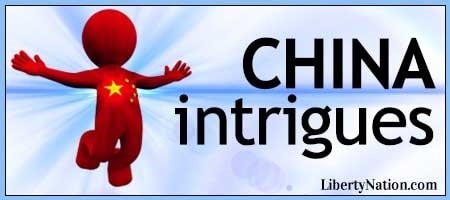Democracy prevailed whether the White House likes it or not.
When the winner of Taiwan’s national election for president of the island government was announced, did the US president extoll the significant blow for democracy and freedom the results represented? No. President Biden asserted that the US did not support Taiwan independence. There was no affirming the value of Taipei sustaining the freedoms that accrue from being a steadfast democracy. The Chinese government wanted a different outcome and did what it could to influence the result in its favor.
Taiwan Kept Its Incumbent Government
 If the Biden administration was hoping for the outcome of the Taiwan presidential election to be favorable for China, they were disappointed. The US national security team has been attempting to walk a fine line supporting the Taipei government with weapons for its defense against a People’s Republic of China (PRC) invasion while trying to make nice with Beijing’s Chinese Communist Party (CCP). Even the most ardent foreign policy diplomacy wonk would consider that a challenge. Nonetheless, on receiving the news that Taiwan’s serving Vice President, Lai Ching-te and his Democratic Progressive Party (DPP), had won the election, the reaction was anything but ringing enthusiasm. The US State Department released a press statement that said,
If the Biden administration was hoping for the outcome of the Taiwan presidential election to be favorable for China, they were disappointed. The US national security team has been attempting to walk a fine line supporting the Taipei government with weapons for its defense against a People’s Republic of China (PRC) invasion while trying to make nice with Beijing’s Chinese Communist Party (CCP). Even the most ardent foreign policy diplomacy wonk would consider that a challenge. Nonetheless, on receiving the news that Taiwan’s serving Vice President, Lai Ching-te and his Democratic Progressive Party (DPP), had won the election, the reaction was anything but ringing enthusiasm. The US State Department released a press statement that said,
“The United States congratulates Dr. Lai Ching-te on his victory in Taiwan’s presidential election. We also congratulate the Taiwan people for once again demonstrating the strength of their robust democratic system and electoral process… We look forward to working with Dr. Lai and Taiwan’s leaders of all parties to advance our shared interests and values, and to further our longstanding unofficial relationship, consistent with the US One China policy as guided by the Taiwan Relations Act, the three Joint Communiques, and the Six Assurances.”
Vice President Lai’s victory was a repudiation of the opposition party, the Kuomintang Party, that had as its platform a more conciliatory approach of greater engagement with the PRC leadership. The belief was that a closer diplomatic and economic relationship would best placate the dragon. It is a Neville Chamberlain appeasement strategy that didn’t work with pre-World War II Germany. And it would have failed in the current state of the Taipei-Beijing relationship. There was no evidence to suggest China’s President Xi Jinping would soften Beijing’s fierce dedication to reuniting Taiwan with mainland China simply because the Taipei government wanted more engagement. “Mainland (China) public opinion now prioritizes reunification by force,” an assessment of the tension between Beijing and Taipei reported in The Diplomat.
“‘We don’t support independence…’ Biden said when asked for reaction to Saturday’s election,” Reuters reported. By any measure, Biden’s view was not all that supportive. The democratic and freedom-conscious electorate made it clear with their votes. The Taiwanese want to remain an autonomous people who make their own destiny. Even if President Biden doesn’t want to call it independence.
Keeping Peace in the Indo-Pacific Is Always Tricky
The foreign policy of the US has consistently been one of not poking the dragon but showing strong support for Taiwan to the point of providing weapons for defending the island. US military forces have diligently ensured freedom of navigation in the Taiwan Straits and South China Sea. Numerous combined military exercises with allies in the Indo-Pacific have established the US Defense Department’s intention to help thwart the use of force by the People’s Liberation Army. Nonetheless, Biden’s lukewarm reception of the results of Taiwan’s election doesn’t send a message of strong support for the Taipei government and the will of the Taiwanese people.
Whatever the White House believes about the outcome of last November’s Biden-Xi meeting in San Francisco, the reality is that the basics of the relationship have not changed. There is still what can only be considered a cold war between the PRC and the US. The DPP’s win in Taiwan is a win for Washington, whether the White House acknowledges it or not. The people of Taiwan stood up to its bullying neighbor. It is a win for preserving a long-standing democracy on Beijing’s doorstep. Biden didn’t have to put on his running shoes and take a victory lap around the National Mall, but a subtle acknowledgment that a free people used their vote could have gone a long way in playing down an appeasement strategy.
~
The views expressed are those of the author and not of any other affiliation.

